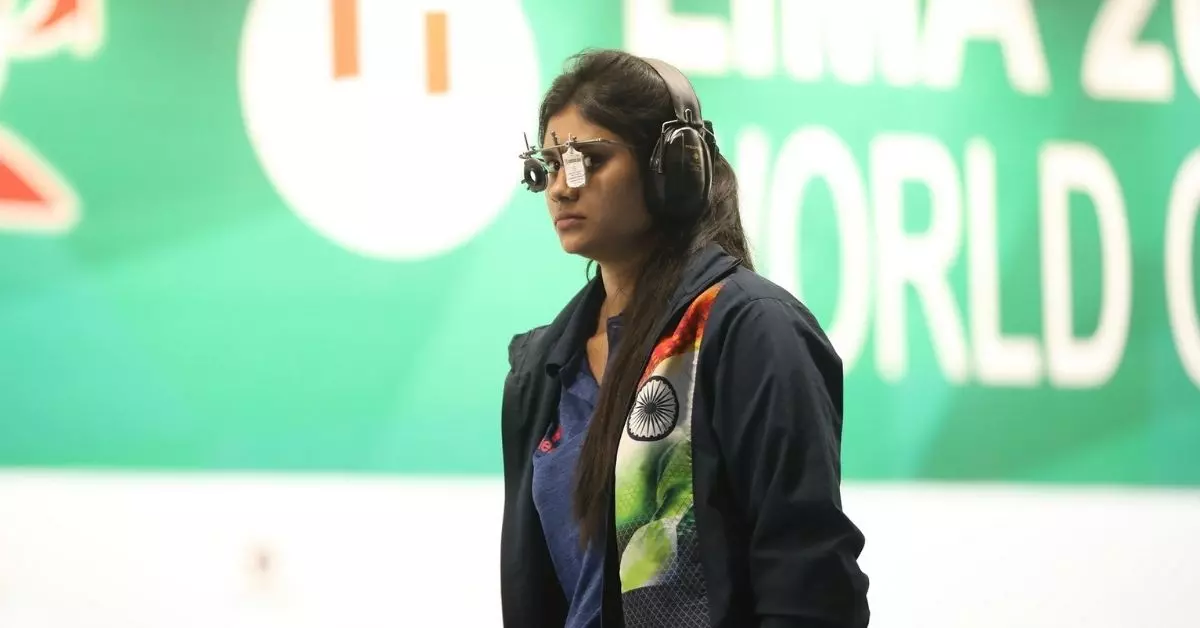Tokyo 2020 Paralympics
Shooter Rubina Francis overcame disability, financial struggle and COVID to seek Paralympic glory
World record holder Rubina Francis guns to shatter more records and create history at the Tokyo Paralympics.

Rubina Francis
Rubina Francis has gone through some of the toughest battles and overcome them all, and persevered against the odds to make a name as one of India's ace Para-shooters, boasting an impressive career at a young age while being able to stay away from the media spotlight.
The shooter from Madhya Pradesh made the country proud when she clinched the gold medal in the 10m air pistol event for women at the ongoing Para Sport Cup in Peru, which helped her qualify for the Tokyo Paralympics.
Rubina set a new world record in the process by shooting an astounding 238.1 to break the previous record set by Turkey's Aysegul Pehlivanlar.
The youngster had a rough journey filled with countless obstacles to get to the very top of her sport. She first rose to prominence after qualifying for the Asian Para Games in 2018 at the age of 19 with the support of legendary Olympian Gagan Narang's academy.
The tutelage of her coach Nishant Nathwani helped her gain a footing and blaze through the competition amassing an impressive collection of 15 International titles to her kitty.
The 22-year-old started her career with the support of her parents, who backed her by helping her register for Gun for Glory and helping her through states and nationals.
"I wanted to do something else besides studies in school. Gun for Glory academy came to my school to advertise shooting, and I told my father I wanted to do this. So I registered myself, and I got selected. That is how the interest developed. My parents backed me, and that is how I took up shooting. The journey started from there. First, it was the state, then pre-nationals and then nationals," said Rubina, reports FirstPost.
"Financial challenges were less. There were other mental challenges. I lost on studies as well. There was a lot of stake in between. There were many adjustments made on part of the family. They stood by me and in my hardest journey," she added.
The tutelage of her coach and the experience and training she gained at the academy helped her propel her career and put her in the limelight.
"I was introduced to Guns for Glory in 2015. And from there only, I started my career in the shooting. I qualified for their programme after several trials and then went on to play both nationally and internationally soon after. I realized the scope of this particular field and developed a deep interest in it. My family also supported me fully in this decision since there was a constant flow of incoming medals. As a result, seeing my progress, my family was fully behind me. In 2017, I got selected for an international event, after competing in several national ones. I have played in international competitions in Dubai, Bangkok, and Paris. The next destination for me in Indonesia, for the Asian Para Games," the Para-shooter remarked in an interview with The Bridge 3 years ago.
Her coaches also helped her build mental fortitude and bounce back from losses with persistence and determination. "Sometimes, I feel depressed due to string of losses and all, and you feel you cannot do that anymore. But thanks to the coaches, I get back to doing it again," said Rubina in an interview with First Post.
Financial support was an obstacle for Rubina, like most Para-athletes, but with the massive support from her father, who tried everything within his power to help his daughter fulfil her dreams. She was able to chase after her goals with determination as their support validated her choices.
"Shooting is not an easy sport to afford. However, my father tried all he could from his side. That was a big support. Another thing that helped me a lot was the fact that my parents were very open-minded throughout the whole process. We still see in our country that girls are not given as much freedom. But my parents never stopped me. They never stopped me from going to various competitions. When you are getting this kind of support, you feel validated in your choices. You feel as if you are on the right track," said Rubina.
When asked if the government support was adequate, she replied by saying, "Yes, we do receive slightly less support than able-bodied sports. But I don't know how these things work, so I would refrain from giving any false information. As far as the state government is concerned, they have helped me a lot."
Despite her disability, lack of financial support, social stigmas, and many other obstacles, her love for sports and her country helped her overcome the odds and rise to the occasion with a podium finish at the Paralympics not that far in sight.
"Sports is everything to me- my life, my career, my status - everything. Sports gave me a different perspective on things and helped me make my nation proud," she concluded.
